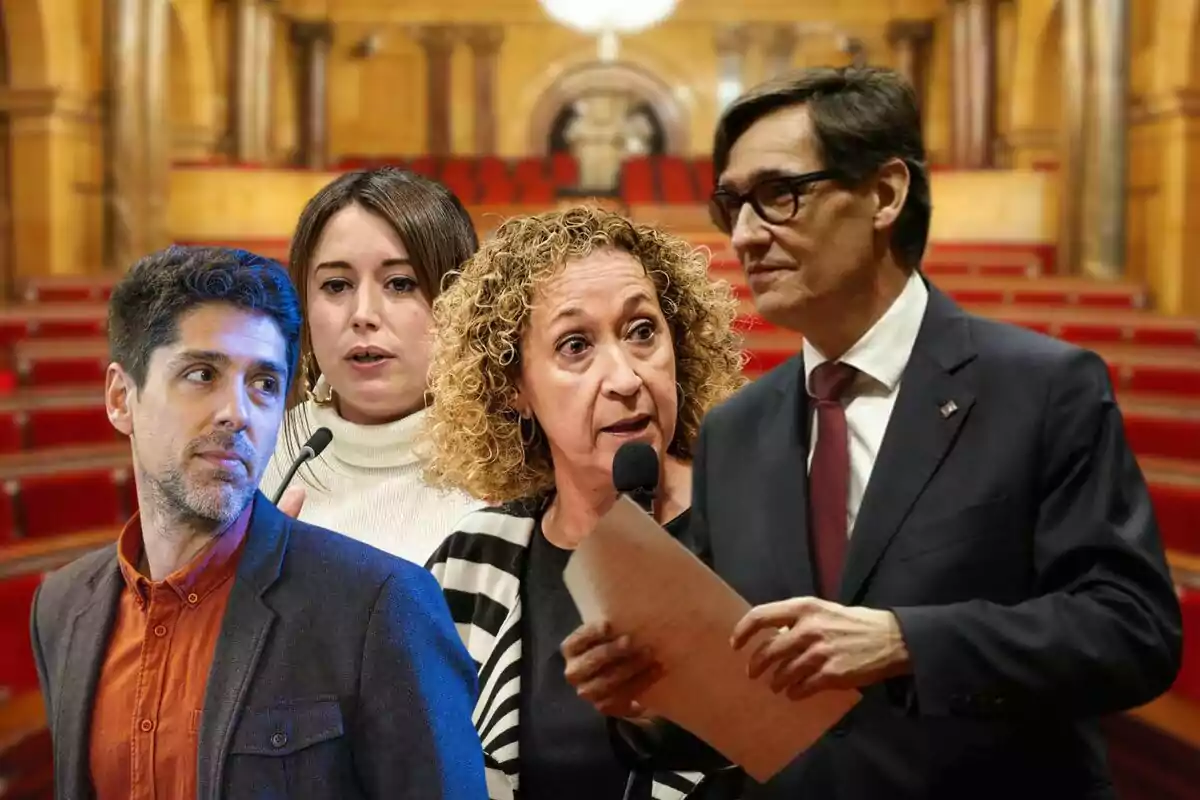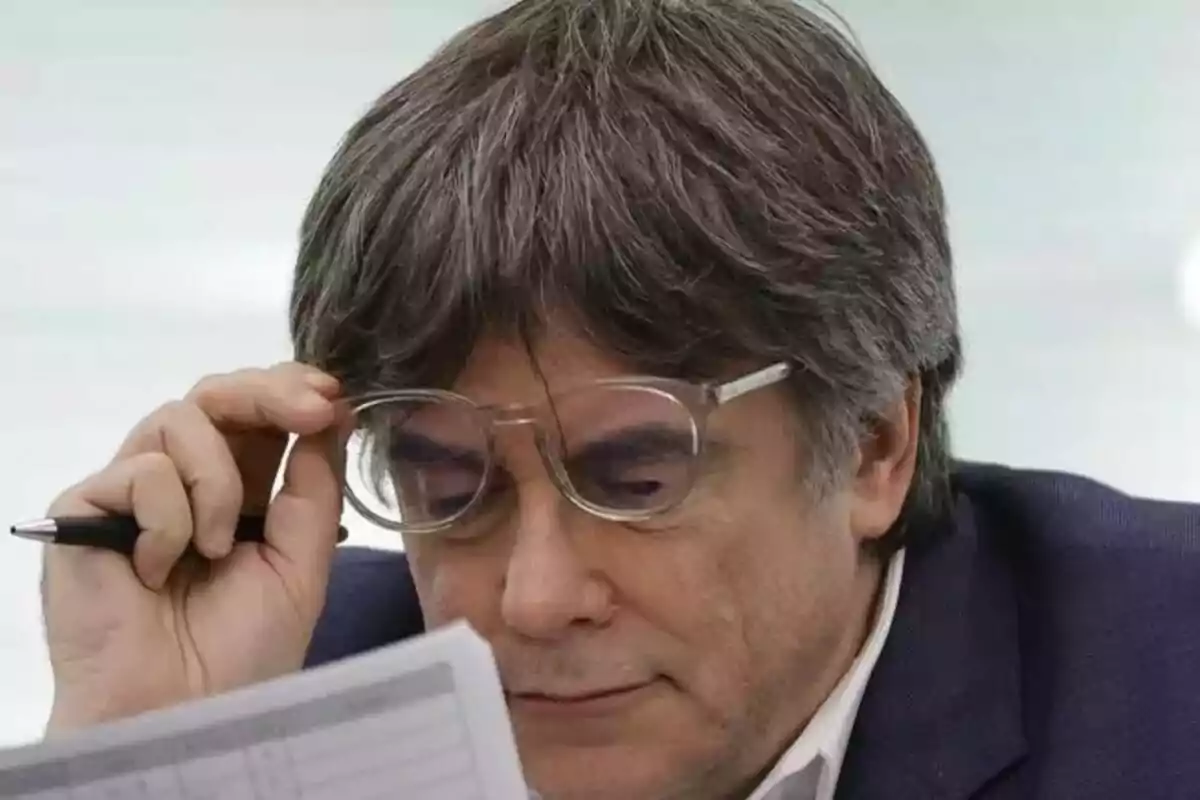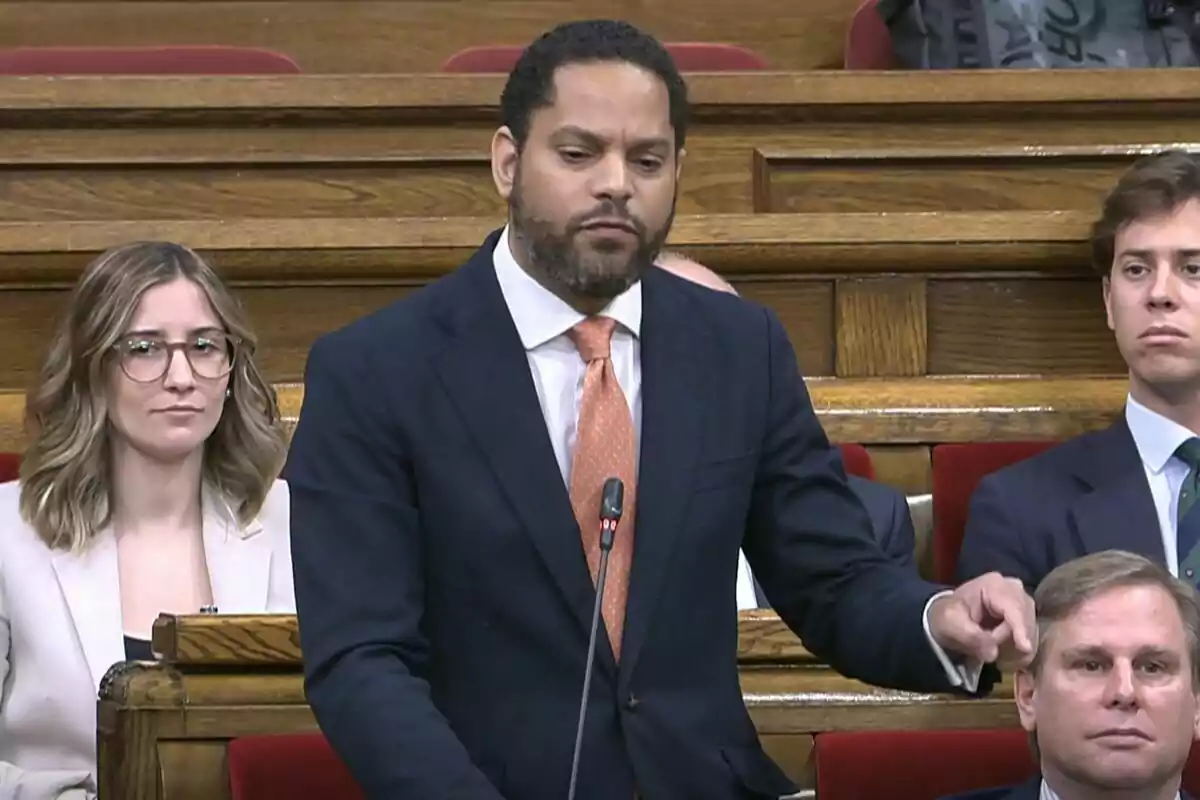
The four-party coalition grows stronger in a Catalonia mired in deadlock
The left clings to power amid the stagnation of political blocs
Salvador Illa's government has completed 300 days this week, also coinciding with the anniversary of the start of the 15th legislature in Catalonia's parliament. The aspiration to create a large centrist space and to govern with broad consensus has been frustrated by the reality of a polarized parliament. PSC has not only tied itself to ERC and Comuns, but has also been giving ground to CUP.

This very week, the good rapport among the four left-wing parties has once again become evident in parliament. Together, they have voted in favor of creating a study commission proposed by Comuns and CUP on guaranteeing the right to housing. Together, they have voted against a study commission proposed by Junts on Catalonia's economy.
In addition, ERC and Comuns have endorsed the third credit supplement that gives stability to Salvador Illa's government. Many have already stopped talking about the tripartite and now refer to the four-party coalition that governs Catalonia.
Political deadlock in Catalonia
While the left tightens their ties to keep power at any cost, Catalonia remains mired in political deadlock.This week, we've seen another poll confirming the stagnation of the blocs.
PSC continues to grow, but at a slower pace than the decline of its partners, ERC and Comuns. This seriously threatens the renewal of the current government, since not even CUP's votes would be enough to reach an absolute majority. The separatist bloc, on one hand, and the constitutionalist right, on the other, also remain far from the 68 deputies needed.
The only blocs that add up are constitutionalism (PSC, PP, and Vox) and sociovergencia (PSC and Junts). The first option is unfeasible for obvious reasons. The second is practically so as well, because it would force Carles Puigdemont to play second fiddle in Illa's government.

Although nothing can ever be ruled out when it comes to Waterloo, as President Pedro Sánchez's investiture showed. It's also the favorite formula of Catalan businesspeople. Moreover, Puigdemont is eager to remove ERC from Catalan institutions.
In any case, that would require a one-hundred-eighty-degree turn in PSC's strategy, which has entrenched itself in the progressive bloc. Striking a deal with Junts would mean a major shift in the government's policies on taxation and housing. It seems that PSC would benefit more from a repeat election to attract votes from ERC and Comuns in a second round.
Weak government, divided opposition
The political deadlock not only threatens a repeat election and the lack of consensus, but also institutional paralysis. The governing alliance is so fragile that any clash between ERC and Comuns pushes the government into a crisis, as happened with the tourist tax. In addition, PSC's minority government continues to govern by decree, turning its back on parliament.
Illa, who inherited this habit from Pere Aragonès, has already been warned by the Consell de Garanties about the abuse of this exceptional mechanism. This, governing without a budget, and insisting on the cordon sanitaire against Vox and Aliança Catalana, cast doubt on the democratic functioning of Catalan institutions. They also highlight the weakness of a government in the hands of minorities.

Despite this reality, the opposition is too weak and too divided to confront the government. Junts does what it can while fighting to avoid total collapse, as the polls show. PP and Vox remain locked in their own private war, and Aliança Catalana is still too new a project to establish itself as an alternative.
Not everything is negative. The opposition parties have managed to set the agenda and discourse on issues such as security and immigration, and to highlight Illa's weakness in the hands of the radical left. In this sense, one shouldn't underestimate the work these parties are doing to expose scandals like that of DGAIA.
More posts: